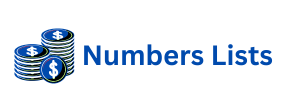The Foundation of Digital Presence: Mastering Content Writing for SEO
Effective content writing forms the bedrock of any successful online presence. It goes beyond simply filling pages with text. Truly impactful content educates, entertains, and solves user problems. It speaks directly to the audience’s needs and queries. This strategic approach ensures your message resonates deeply. Moreover, quality content is the essential fuel for search engine optimization (SEO).
Search engines like Google prioritize valuable, relevant information. They aim to connect users with the best possible answers. Therefore, your content must demonstrate expertise and authority. Understanding user intent is paramount for every content writer. What are people truly looking for when they type a query? Crafting content that addresses this intent is crucial. This helps your pages rank higher in search results. Higher rankings lead to increased visibility.
Ultimately, strong content acts as a magnet. It attracts organic traffic to your website. Visitors spend more time on well-written, informative pages. This engagement signals quality to search engines. It builds trust with your audience over time. High-quality content also provides a natural basis for earning valuable links. These connections are vital for establishing domain authority and trust. We will explore this further.
Unlocking Visibility Through Semantic SEO and Strategic Keyword Use
Modern SEO has evolved significantly. It moved beyond simple keyword stuffing. Today, semantic SEO is the gold standard. This approach focuses on the meaning and context behind words. It considers the entire topic, not just isolated keywords. Content writers must think about entities and relationships. How do different concepts relate to each other? This holistic view enriches your content deeply.
Embedding a rich tapestry of related terms strengthens your content. It signals comprehensive coverage to search engines. Users also benefit from this depth. They find all answers in one place. Topical authority is built this way. Your site becomes a trusted resource on specific subjects. This improved authority boosts your overall search performance. It also increases user satisfaction.
Careful keyword research remains important. However, the focus shifts to intent and topic clusters. Identify core topics and supporting sub-topics. Then, create a network of content pieces. Each piece should address a specific aspect of the topic. This strategy allows for a richer, more nuanced understanding. It helps search engines categorize your site accurately. This leads to better matching with user queries. A thoughtful content strategy is key.
Building Authority with Effective External Backlink Strategies
An External Backlink is a crucial signal of trust. It is a link from another website to yours. Think of it as a vote of confidence. When reputable sites link to your content, it boosts your authority. Search engines view these links favorably. They indicate that your content is valuable and credible. Therefore, acquiring these links is a core SEO activity. It significantly impacts your search rankings.
Developing a robust link building strategy is essential. It requires outreach and relationship building. Guest posting on relevant, high-authority sites can be effective. Creating exceptional, shareable content also attracts links naturally. Infographics, data studies, and comprehensive guides are link magnets. Identifying broken links on other sites and offering your content as a replacement is another tactic. This method provides mutual benefit.
The quality of the linking domain matters greatly. A link from a highly authoritative site is more valuable. Focus on relevance as well. Links from sites within your industry are more impactful. They reinforce your topical expertise. Avoid spammy or low-quality link schemes. These can harm your SEO efforts. Natural, earned links are always the best. They contribute positively to your website’s standing.
Enhancing User Journeys with Smart Internal Backlink Planning
Beyond external links, an Internal Backlink is equally vital. This type of link connects one page on your website to another. Internal links serve multiple important purposes. First, they help search engines discover your content. They improve website crawlability. Spiders follow these links to index new and updated pages. This ensures all your valuable content gets found.
Second, internal links distribute “link juice” or authority. When a high-authority page links to a lower-authority page, it passes some of its power. This strengthens the linked page’s SEO value. Strategically linking your most authoritative content to less authoritative pages is smart. It helps balance the flow of authority across your site. This optimizes your overall SEO performance.
Third, internal links enhance user experience. They guide visitors through your website. Users can easily navigate to related content. This keeps them on your site longer. It reduces bounce rates. Contextual links within blog posts are particularly effective. They provide readers with further information on a topic. Use descriptive anchor text for internal links. This helps both users and search engines understand the linked content.
Synthesizing Content Writing for Lasting SEO Success
Ultimately, superior content writing drives all successful SEO. It is the core element that attracts users and earns links. Both internal and external links are critical for visibility. They build authority and improve user journeys. Integrate these strategies thoughtfully into your content creation process. Continuously refine your content and link building efforts. This integrated approach ensures sustainable digital growth and presence.
